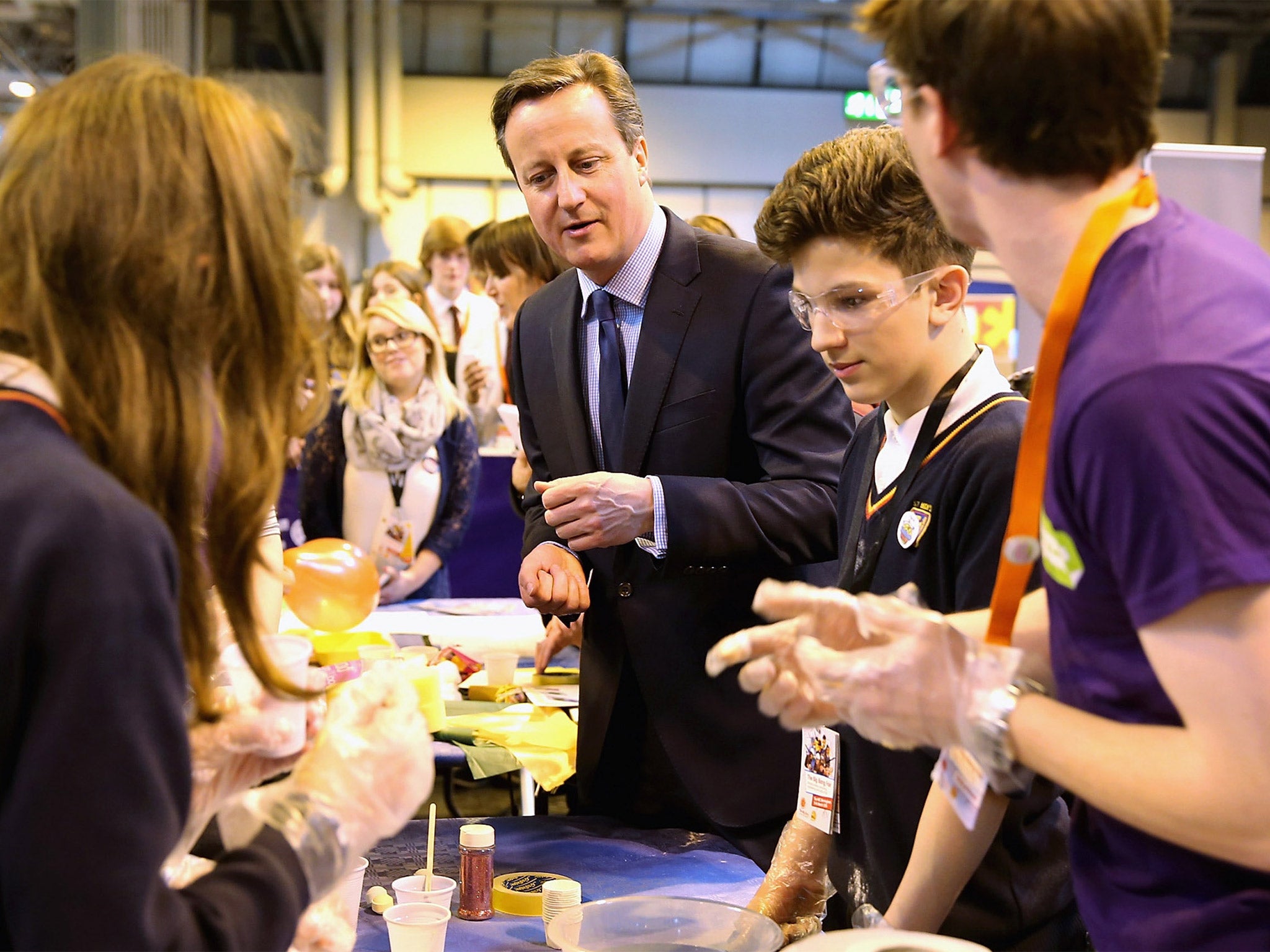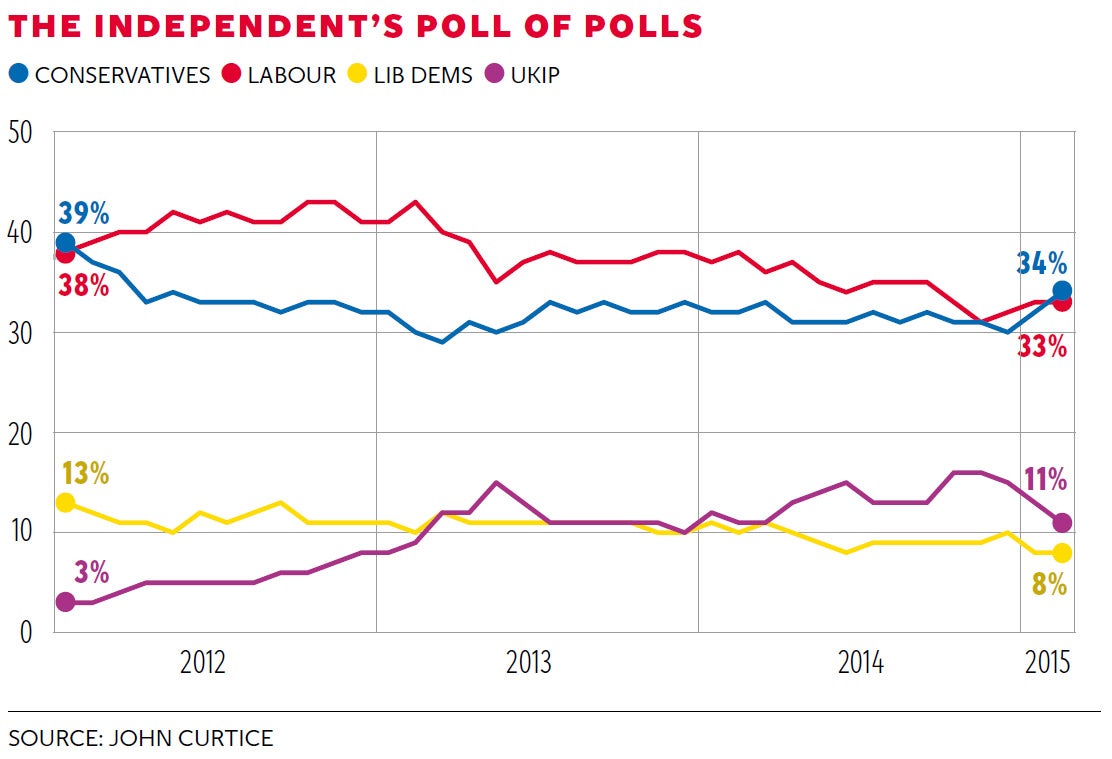Tories creep ahead of Labour for the first time in three years, in latest poll of polls
Tories are now on 34 per cent, their highest 'poll of polls' rating since May 2012

Your support helps us to tell the story
From reproductive rights to climate change to Big Tech, The Independent is on the ground when the story is developing. Whether it's investigating the financials of Elon Musk's pro-Trump PAC or producing our latest documentary, 'The A Word', which shines a light on the American women fighting for reproductive rights, we know how important it is to parse out the facts from the messaging.
At such a critical moment in US history, we need reporters on the ground. Your donation allows us to keep sending journalists to speak to both sides of the story.
The Independent is trusted by Americans across the entire political spectrum. And unlike many other quality news outlets, we choose not to lock Americans out of our reporting and analysis with paywalls. We believe quality journalism should be available to everyone, paid for by those who can afford it.
Your support makes all the difference.The Conservatives have edged ahead of Labour for the first time in more than three years, according to the latest poll of polls for The Independent.
The finding will raise Tory hopes that the party can achieve some momentum before the May election. Tory ministers and MPs have been frustrated that the better economic figures have not yet showed up the opinion polls, but that may finally be starting to happen.
The Tories are now on 34 per cent, their highest “poll of polls” rating since May 2012, putting them ahead of Labour for the first time since January 2012. The Tories are up two points on the previous month. Labour is unchanged on 33 per cent and the Liberal Democrats unchanged on eight per cent. Ukip dropped from 13 per cent to 11 per cent and the Greens from eight per cent to seven per cent.

The bad news for the Tories is that these figures, if repeated on a uniform swing, would still make Labour the largest party in a hung parliament. Labour would have 311 seats, the Tories 290 and the Lib Dems 19. However, if the dramatic rise of the Scottish National Party in polls in Scotland is taken into account, Labour’s lead would be much smaller. Labour would have 285 seats, the Tories 271, the SNP 58 and the Lib Dems 16.
John Curtice, professor of politics at Strathclyde University, who compiled the poll of polls said: “The advance in the Tories’ position and the fall back in Ukip support will put a bit of a spring in the step of the Tory faithful.”
The proportion of 2010 Tory voters saying they would back Ukip had fallen from 17 per cent in December to 13 per cent, he added.
Professor Curtice said there were signs that the Tories’ ratings on the economy were starting to improve just in time for the election. For example, YouGov’s “feelgood factor” - whether people think their household finances will get better or worse over the next 12 months - is at its most positive level since the 2010 election. “There are some signs in particular that the deep economic pessimism amongst Ukip supporters is beginning to ease a little,” he said.
However, Professor Curtice pointed out that the Tories might need a seven-point lead over Labour to secure a majority. “There is still a long way for David Cameron to travel,” he said.
The latest poll of polls takes the election “more firmly into hung parliament territory”, with both the Tories and Labour some distance from the 326 seats needed for an overall majority. He said this could make the formation of a government after May 7 “a potentially fraught and difficult affair”.
Professor Curtice added: “What happens north of the border could now be central to the prospects of anyone being able to form a stable government.” He said it would be difficult for any government to be formed without the acquiescence of the SNP, which has said it would not prop up a minority Tory government.
Join our commenting forum
Join thought-provoking conversations, follow other Independent readers and see their replies
Comments